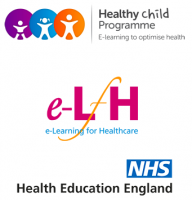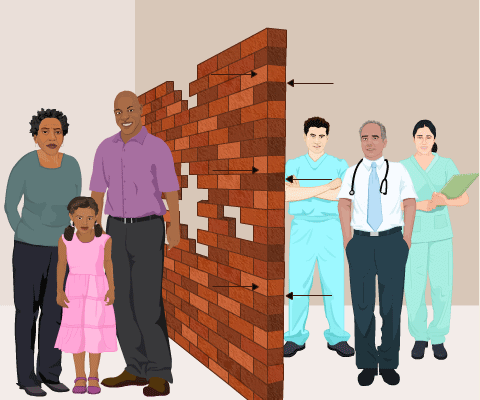Hard to Reach and Seldom-heard Families course for General Practitioners



This session will explore what is commonly understood by the term ‘hard to reach’ and what this understanding leads practitioners to conclude.
Learning objectives
By the end of this session you will be able to:
- Define the concept of ‘hard to reach’ families
- Identify key family characteristics which challenge service provision and access
- Identify key characteristics of services which inhibit family engagement
- Identify key points in the family’s story at which engagement may have made a difference to the identified outcome
- Describe an assessment framework with allows family needs to be accurately recorded
In this session we will explore what is commonly understood by the term ‘hard to reach’ and what this understanding leads practitioners to conclude. As part of this exploration we will consider the service user and provider characteristics that prohibit families receiving the help they could most benefit from and the means by which their needs can be assessed.
Before commencing this session, you should:
- Complete session: Family Health/Families in the UK (402-0006)
- Be working with a service aimed at meeting the needs of families with children
- Have read the Healthy Child Programme Pregnancy to 5 years
Karen has a professional background in health visiting and her research and teaching activities reflect this prior experience. She gained most of her professional practice experience as a health visitor in Salford and moved to the University of Central Lancashire, Preston in 1998. She has a particular interest in the support of parents in the early years and how services might be organised to support improved community health and well-being. Her own PhD completed in 2008 at King’s College, London, was funded by a DH training fellowship grant which allowed her to research health visiting involvement in parenting support programmes.
Linked with her interest in the subject ‘hard-to-reach’ she has co-authored publications considering factors associated with parental engagement and practitioner approaches for working with families.

- Examination of a Middle Aged Female Patient with H...
- Posted By eIntegrity Healthcare e-Learning
- Posted Date: 2025-01-27
- Location:Online
- This session uses a video clip to demonstrate how to carry out a focused, problem-based physical exa...
- Examination of a 73-year-old Woman Presenting Afte...
- Posted By eIntegrity Healthcare e-Learning
- Posted Date: 2025-01-27
- Location:Online
- This session uses a video clip to demonstrate how to carry out a focused, problem-based physical (ne...
- Examination of a 50-year-old with a Painful Eye co...
- Posted By eIntegrity Healthcare e-Learning
- Posted Date: 2025-01-27
- Location:Online
- This session uses a video clip to demonstrate how to perform a focused, problem-based physical exami...
- Examination of a 40-Year-Old Woman with Symptoms o...
- Posted By eIntegrity Healthcare e-Learning
- Posted Date: 2025-01-27
- Location:Online
- This session uses a video clip to demonstrate how to perform a focused, problem-based physical exami...
- Examination of a 60-year-old Man with Unilateral H...
- Posted By eIntegrity Healthcare e-Learning
- Posted Date: 2025-01-27
- Location:Online
- This session uses a video clip to demonstrate how to carry out a focused, problem-based physical exa...










